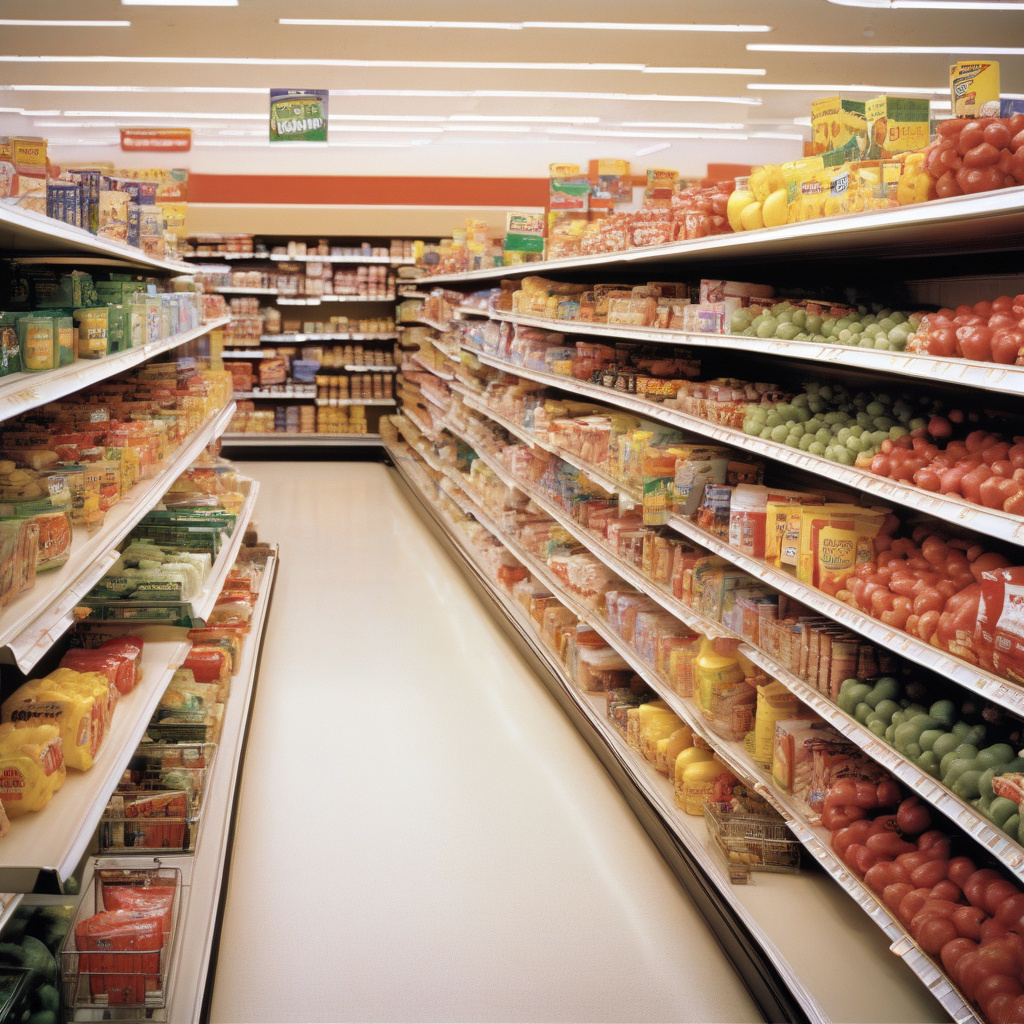U.S. Consumers Are Starting to Crack as Tariffs Add to Inflation, Recession Concerns
As the U.S. grapples with a host of economic challenges, consumers find themselves at a crossroads. Rising tariffs are amplifying inflationary pressures, leading to growing concerns about a potential recession. This precarious situation has not only put a strain on household budgets but has also caused alarm among airline and retail executives who are bracing for a slowdown in consumer demand.
The U.S. government has imposed tariffs on various imported goods in an effort to boost domestic production and protect American industries. However, these tariffs often lead to higher prices for consumers, as businesses pass on the increased costs of imported materials and goods. The Consumer Price Index (CPI) has shown a steady rise, with inflation rates hovering at their highest levels in decades. As everyday items, from groceries to electronics, become more expensive, American families are feeling the pinch.
Retail executives are particularly concerned about the impact of tariffs on consumer spending. According to the National Retail Federation, retail sales in the U.S. account for nearly one-third of the economy. If consumers tighten their belts due to increased prices, the ripple effects could be significant. Major retailers have already reported a slowdown in sales growth, with CEOs expressing worries that the economic landscape is shifting. For example, Target recently noted that rising prices were affecting their customers’ purchasing decisions, prompting the company to adjust its inventory and sales strategies.
Airlines, too, are not immune to the effects of tariff-induced inflation. The travel industry has seen a resurgence post-pandemic, but executives are cautious about the future. Higher costs for fuel and aircraft parts—often driven by tariffs on imported goods—are likely to be passed on to consumers in the form of increased ticket prices. This could lead to a decrease in travel demand, especially among budget-conscious consumers. Delta Air Lines and American Airlines have indicated that they are monitoring consumer behavior closely as they prepare for the upcoming travel seasons.
The looming threat of a recession adds another layer of complexity to the situation. Economists have pointed to various indicators, such as rising interest rates and declining consumer confidence, suggesting that the economy may be heading toward a downturn. The Conference Board’s Consumer Confidence Index has shown signs of fatigue, with consumers expressing concerns about their financial outlook. When consumers feel uncertain about their economic future, they are less likely to spend, further exacerbating the challenges faced by retailers and airlines.
Moreover, the psychological impact of inflation cannot be underestimated. As prices rise, consumers often adjust their spending habits out of necessity. This shift may lead them to prioritize essential goods and services over discretionary spending, such as dining out or luxury purchases. A recent survey conducted by Deloitte found that 45% of consumers plan to cut back on non-essential purchases in the coming months. This trend could spell trouble for sectors like retail and hospitality, which rely heavily on consumer spending.
To counter these challenges, businesses must be proactive in their strategies. Retailers might consider reevaluating their pricing models, offering promotions or discounts to incentivize purchases without compromising profit margins. Additionally, enhancing the customer experience—whether through improved service, loyalty programs, or personalized marketing—can help retain consumers even as they grapple with rising costs.
Airlines may need to rethink their approach to pricing and capacity. Implementing flexible booking policies and creating value-added services can help mitigate the impact of decreased demand. Additionally, investing in technology to optimize operations can lead to cost savings that may allow airlines to keep fares more competitive.
Ultimately, the intersection of tariffs, inflation, and recession concerns presents a formidable challenge for U.S. consumers and businesses alike. As executives in retail and airlines prepare for a potential slowdown in demand, they must remain agile and responsive to the changing economic landscape. The path forward may be fraught with difficulties, but with strategic foresight and consumer-centric approaches, there is a possibility of weathering the storm.
#Tariffs #Inflation #ConsumerSpending #Retail #Airlines
